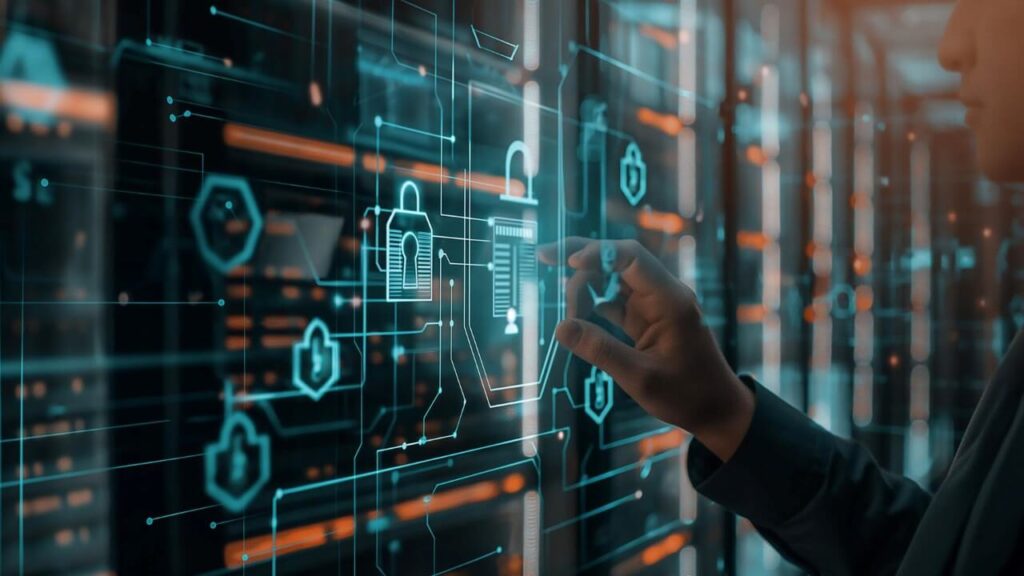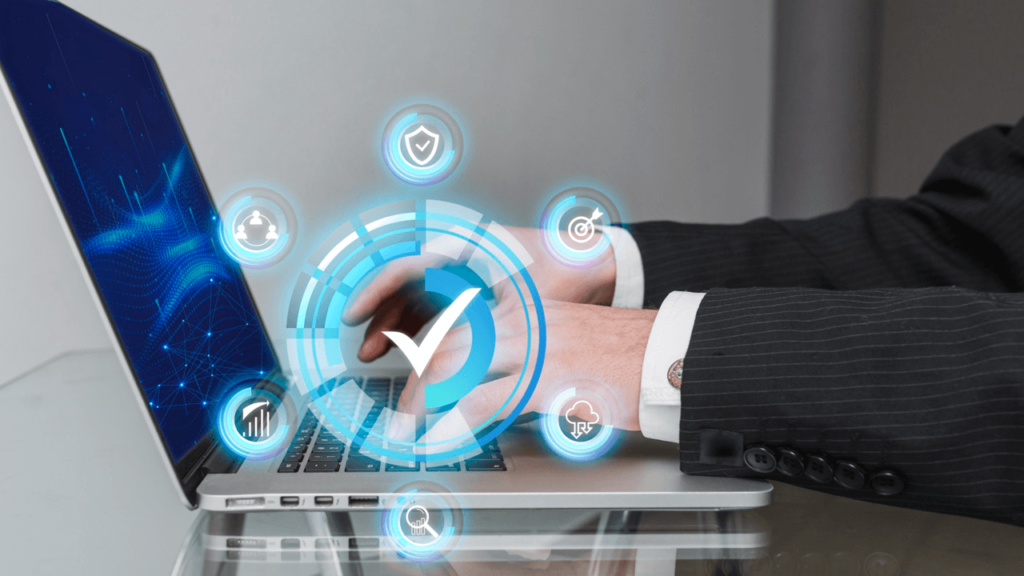ISO/IEC 27001:2022 - INFORMATION SECURITY MANAGEMENT SYSTEMS
Home » Consultation Services » ISO/IEC 27001:2022 Information Security Management Systems
Understanding ISO/IEC 27001:2022
ISO/IEC 27001:2022 – Information security, cybersecurity and privacy protection — Information security management systems (ISMS) is the updated standard that replaces ISO/IEC 27001:2013. This internationally recognized framework provides organizations with a systematic approach to managing sensitive information, ensuring its security across people, processes, and IT systems.
This globally recognized standard offers a comprehensive framework for organizations to protect their data from evolving threats. By implementing ISO/IEC 27001:2022, businesses can effectively manage the confidentiality, availability, and integrity of information, ensuring compliance with international security best practices.
Managing Information Security with ISO/IEC 27001
With increased usage of new technology to store, transmit, and retrieve information, we have exposed ourselves to increased numbers and types of threats. The overall approach to Information Security and integration of different security initiatives needs to be managed in order for each element to be most effective. An ISMS allows you to coordinate your security efforts effectively. The implementation of ISO/IEC 27001:2022 will reassure customers and suppliers that information security is taken seriously within your organization and that defined processes are in place to deal with information security threats and issues.

A Streamlined Approach to Security
While the core ISMS management processes remain unchanged, the security control framework has been restructured and refined to better address today’s evolving cybersecurity challenges. Security controls are now categorized into four key areas:
- Organisational Controls
- People Controls
- Physical Controls
- Technological Controls
Each control is now assigned specific attributes to help organizations align their security strategy with industry standards.

Who Needs ISMS?
The ISMS standard is essential for any organization that handles sensitive information, regardless of its size or industry. This includes businesses managing customer data, intellectual property, financial records, or confidential employee details. Industries such as IT, finance, healthcare, government, and education particularly benefit from implementing an ISMS. It ensures legal and regulatory compliance, builds customer trust, and protects against ever-evolving security threats, making it vital for organizations aiming to safeguard their information assets.
ISO/IEC 27001 Requirements
ISO/IEC 27001 has ten sections. Three sections are general information for your company about the standard and are not auditable. Certification focuses on the seven key auditable sections:
- Context of the Organization
- Leadership
- Planning
- Support
- Operation
- Performance Evaluation
- Improvement
The evolution of ISO/IEC 27001 emphasizes the importance of continual improvement, reduced information security risks, and a structured approach to managing and protecting information assets. It focuses on maintaining confidentiality, integrity, and availability to meet the needs of stakeholders.
ISO/IEC 27001 — The Plan-Do-Check-Act Cycle (PDCA)
The Plan-Do-Check-Act (PDCA) cycle is the operating principle of all ISO management system standards, including ISO/IEC 27001. This essential framework ensures that an organization’s environmental objectives are effectively addressed and supports continuous improvement.
Plan
The planning phase requires organizations to identify the environmental aspects and assess their impacts in order to establish environmental objectives, measurable goals and targets.
Do
During this stage, organizations identify the resources needed and assign personnel responsible for implementing and managing the ISMS before executing the processes defined in the planning stage.
Check
During the checking stage, organizations monitor, measure, and evaluate the effectiveness of their ISMS to ensure that security objectives and requirements are met. Internal audits are also conducted at planned intervals.
Act
Based on the results from the checking stage, organizations conduct a management review to identify opportunities for improvement and implement changes to enhance the ISMS continuously.
Benefits of ISMS
Implementing ISO/IEC 27001 – ISMS provides organizations with a structured framework to protect their information assets effectively. Here’s how ISO/IEC 27001 can benefit your business:
- It helps manage information in all its forms, including digital, paper-based, intellectual property, company secrets, data on devices and in the Cloud, hard copies and personal information.
- It helps the company defend itself from technology-based risks and other common threats such as poorly informed staff or ineffective procedures.
- It reduces costs spent on indiscriminately adding layers of additional technology that might not work, due to the risk assessment and analysis approach.
- It constantly adapts to changes both in the environment and inside the organization to reduce the threat of continually evolving risks.
- It make sures that information security is entrenched in the business, improving the organizational culture and making processes efficient.
- It focuses on the integrity and availability of data as well as confidentiality. If the data is available but in a format that is not usable because of a system disruption, then the integrity of that data has been compromised; if the data is protected but inaccessible to those who need to use it as part of their job, then the availability of that data has been compromised.
- It protects the availability of information and critical business processes from the effects of major disasters to ensure their timely resumption.
- It enables businesses to be significantly more resilient to cyber-attacks.
- Continual improvement, monitoring, internal audits and corrective actions make sure that the controls remain up to date and work properly.
Professional ISO/IEC 27001 Consultant in Malaysia
At SQC, our comprehensive ISO/IEC 27001 consulting services guide your business through each step of certification, ensuring compliance with the ISO/IEC 27001 standard and setting your organization up for long-term success. Our process includes:
Initial Consultation and Assessment
We conduct a thorough analysis to understand your organization’s goals, current practices, and desired outcomes with ISO/IEC 27001 standards. This helps us identify your unique needs and expectations.
Planning and Customization
We assist in developing a tailored plan for ISO implementation. This includes defining the implementation scope across relevant departments, setting timelines, and collaborating with your team to establish an effective schedule.
Analysis and Policy Development
Our consultants conduct a thorough gap analysis, comparing existing processes with ISO/IEC 27001 requirements. We then assist in creating a customized documentation framework, revising policies, and aligning procedures to bridge identified gaps.
Training and Implementation
Working alongside your team, we support the rollout of new processes identified in the gap analysis. We provide targeted training to ensure employees understand ISO/IEC 27001 standards, the importance of compliance, and their role in maintaining an information security management system. We also establish an internal audit program to monitor progress.
Pre-Certification and Audit Support
Before the certification audit, we conduct a pre-certification audit to evaluate your organization’s ISO/IEC 27001 readiness. Our team helps implement corrective actions if needed and supports your selection of a reputable certification body. We guide you through the final certification audit process to ensure success.
Continuous Support and Improvement
After achieving ISO/IEC 27001 certification, we work with your organization to foster a culture of continuous improvement, conducting periodic reviews to maintain compliance. Our ongoing support ensures your ISMS adapts effectively to changing needs and industry standards.
FAQs on ISO/IEC 27001 Information Security Management System
What is ISO/IEC 27001:2022 ISMS?
ISO/IEC 27001 is a globally recognized standard for Information Security Management Systems (ISMS), focusing on protecting and securing an organization’s information assets. ISO/IEC 27001:2022 is the most recent version of this standard.
Why is ISO/IEC 27001 important for my business?
ISO/IEC 27001 certification demonstrates a commitment to information security, helps protect against security threats, and increases trust with customers and stakeholders. It also assists in compliance with legal and regulatory requirements.
What are the requirements for ISO/IEC 27001 certification?
ISO/IEC 27001 certification requires alignment with seven key sections of the standard, including Context of the Organization, Leadership, Planning, Support, Operation, Performance Evaluation, and Improvement. These ensure a systematic approach to managing your organization’s information security. Get in touch with our consultants to find out more.
How long does it take to achieve ISO/IEC 27001 certification?
The time needed for ISO/IEC 27001 certification varies depending on the organization’s size, current practices, and readiness. Generally, it can take from several months to a year. Get in touch with our consultants to find out more.
What is the cost of ISO/IEC 27001 certification in Malaysia?
The cost of ISO/IEC 27001 certification in Malaysia varies based on factors like company size, scope, and certification body fees. Consulting fees may also vary depending on the level of support needed, generally ranging around several thousand Ringgit Malaysia. Contact us to find out more.
Do I need a consultant for ISO/IEC 27001?
SQC offers comprehensive consultancy services in Malaysia, providing expert guidance and support throughout your ISO 14001:2015 certification journey. We ensure a seamless process, helping your company enhance its environmental management system and achieve certification.
Can I apply for ISO 14001 without a consultant?
While ISO/IEC 27001 certification can be achieved independently, working with a consultant can simplify the process, provide expert insights, and increase the likelihood of successful certification.
Can I apply for ISO/IEC 27001 without a consultant?
Yes, but working with a consultant can simplify the process, provide essential guidance, and reduce the time to certification. If you prefer to apply for ISO/IEC 27001:2022 on your own, consider visiting our Training Programmes for resources and courses that can help you understand and implement ISO/IEC 27001 requirements effectively.
Will ISO/IEC 27001:2022 Affect My Current ISO/IEC 27001:2013 Certification?
The updates in ISO/IEC 27001:2022 do not immediately impact existing ISO/IEC 27001 certifications. However, if you wish to stay aligned with the latest standard, it’s recommended to transition to the 2022 version.
Can ISO/IEC 27001 be integrated with other ISO standards?
Yes, ISO/IEC 27001 can be integrated with other standards like ISO 9001 for quality management to create a cohesive Integrated Management System (IMS).
Protect Your Information with ISO/IEC 27001 Certification
Ensure your organization’s data security and compliance with ISO/IEC 27001 certification from SQC. Our expert consultants guide you through implementing a robust information security management system, helping to safeguard sensitive data and reduce risks.
Ready to enhance your information security? Contact us today to start your ISO/IEC 27001 certification journey!
